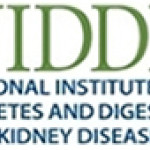- Industrie: Government; Health care
- Number of terms: 17329
- Number of blossaries: 0
- Company Profile:
The National Institute of Diabetes and Digestive and Kidney Diseases (NIDDK) conducts and supports research on many of the most serious diseases affecting public health. The Institute supports much of the clinical research on the diseases of internal medicine and related subspecialty fields, as ...
A condition that can occur after an operation to remove the stomach (gastrectomy). It causes food to empty too quickly.
Industry:Medical
The part of the intestine that includes the appendix, cecum, colon, and rectum. The large intestine absorbs water from stool and changes it from a liquid to a solid form. The large intestine is 5 feet long.
Industry:Medical
X ray of the rectum, colon, and lower part of the small intestine. A barium enema is given first. Barium coats the insides of organs so they will show up on the x ray.
Industry:Medical
A chalky liquid used to coat the inside of organs so they will show up on an x ray.
Industry:Medical
Medicines that stop the stomach’s acid pump. Examples include omeprazole, lansoprazole, and esomeprazole. (Brand names: prilosec, prevacid, nexium. )
Industry:Medical
A group of symptoms that occur when a tumor called a gastrinoma forms. The tumor, which can be cancerous, releases large amounts of the hormone called gastrin. The gastrin causes too much acid in the duodenum, resulting in ulcers, bleeding, and perforation.
Industry:Medical
A genetic condition causing multiple abnormalities in the body, including in the liver. A lower than normal number of bile ducts inside the liver reduces bile passage.
Industry:Medical
A form of inflammatory bowel disease that causes irritation in the gastrointestinal (gi) tract. It usually affects the lower small intestine (also called the ileum) or the colon, but it can also affect any part of the gi tract.
Industry:Medical
